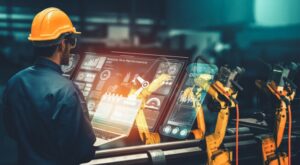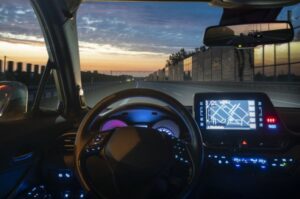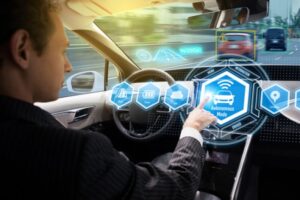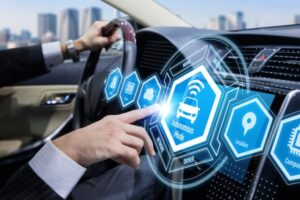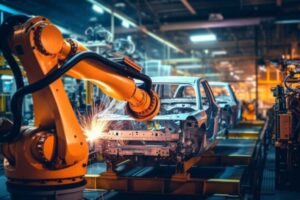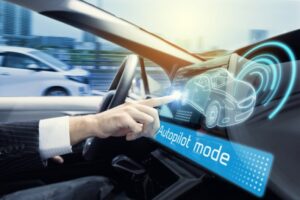Artificial Intelligence in Automotive: Transforming the Driving Experience
The automotive industry is during a revolution, and at the heart of this transformation is Artificial Intelligence (AI). From autonomous driving to personalised in-car experiences, AI is reshaping the way we interact with vehicles, making driving safer, more efficient, and enjoyable.
AI in Automotive Industry
Artificial Intelligence (AI) in the automotive industry refers to the application of artificial intelligence methods across different facets of the automotive sector. Incorporating technologies like machine learning, natural language processing, and computer vision, AI enhances various aspects of the automotive landscape with the objective of improving the overall driving experience. Within the realm of AI in automotive, tasks such as route planning, navigation, parking, and more are automated, introducing efficiency and safety measures for drivers. Let’s explore the primary ways in which AI is transforming the driving experience.
1. Autonomous Driving: Navigating the Future
One of the most significant impacts of AI in automotive is the development of autonomous driving technology. AI algorithms, powered by machine learning and deep neural networks, enable vehicles to perceive their surroundings, make real-time decisions, and navigate routes without human intervention. From Tesla’s Autopilot to Google’s Waymo, companies are pushing the boundaries of what’s possible, promising a future where commuting becomes a hands-free, stress-free experience.
2. AI-Enhanced Safety Features: A Guardian on the Road
AI plays a crucial role in enhancing vehicle safety. Advanced driver-assistance systems (ADAS) powered by AI algorithms detect potential collisions, assist with lane-keeping, and even take corrective actions to prevent accidents. These safety features not only protect drivers and passengers but also contribute to the overall reduction of road accidents.
3. Personalised In-Car Experience: Your Car, Your Way
AI is bringing personalization to the driving experience. Smart assistants like Amazon’s Alexa or Apple’s Siri integrated into vehicles use AI to understand and respond to natural language commands. Additionally, AI-driven interfaces learn from driver behaviour, adjusting settings, playlists, and climate control to match individual preferences. The result is a tailor-made driving experience that goes beyond the one-size-fits-all approach.
4. Predictive Maintenance with AI: Keeping Cars in Peak Condition
AI isn’t just transforming how we drive; it’s also changing how we maintain our vehicles. Predictive maintenance powered by AI analyses data from sensors and onboard diagnostics to predict potential mechanical issues before they become major problems. This not only increases vehicle reliability but also helps drivers save on repair costs and avoid unexpected breakdowns.
5. AI in Traffic Management: Smarter Roads for Smoother Rides
In smart cities, AI is playing a pivotal role in optimising traffic flow and reducing congestion. Adaptive traffic signals, informed by real-time data and AI algorithms, adjust signal timings based on current traffic conditions. This not only minimises wait times for drivers but also contributes to more fuel-efficient driving and reduced carbon emissions.
6. Challenges and Ethical Considerations: Navigating the Road Ahead
While the benefits of AI in automotive are undeniable, there are challenges and ethical considerations that come with it. Issues related to data privacy, algorithmic bias, and the transitionary period where AI and human drivers share the road are crucial aspects that demand careful attention and responsible development.
7. Driving into the AI-Powered Future
As we witness the transformative power of AI in the automotive industry, it’s clear that the driving experience is evolving. From self-driving cars to personalised in-car interactions, AI is not just a technological advancement; it’s a paradigm shift that promises to make our roads safer, more efficient, and more enjoyable. As the industry continues to innovate, one thing is certain: the future of driving is being shaped by the intelligence of machines
